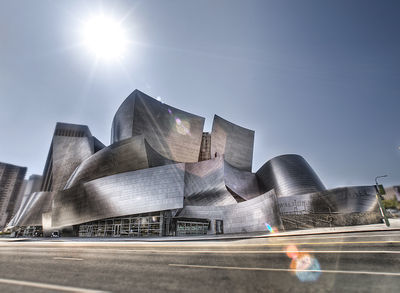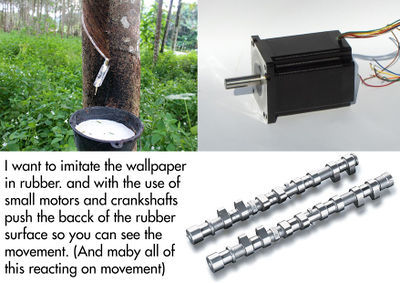Difference between revisions of "User:Aaron"
| (30 intermediate revisions by the same user not shown) | |||
| Line 34: | Line 34: | ||
=MAKING A MOLD (for the membrane)= | =MAKING A MOLD (for the membrane)= | ||
| − | I have chosen to make a coral | + | I have chosen to make a coral landscape instead of the wallpaper of Ora Ito because I think the corals have an even nicer and a more various landscape than Ora's wallpaper. |
<gallery> | <gallery> | ||
| Line 49: | Line 49: | ||
I have first tested a technical option out of knex. In the movie you see a membrane out of elastic fabric. | I have first tested a technical option out of knex. In the movie you see a membrane out of elastic fabric. | ||
| − | [[File:DSC02685.JPG| | + | [[File:DSC02685.JPG|300px]] <br> |
The mechanics of the test. | The mechanics of the test. | ||
| − | I was very glad with the visual | + | I was very glad with the visual outcome of this test. But I thought that it also could work in another way. Because the latex membrane had a lot of projections so the wheels wont ride smooth over the membrane. |
Test 1: Membrane of high elastic fabric | Test 1: Membrane of high elastic fabric | ||
https://www.youtube.com/watch?v=md2VDZHLkGw&feature=youtu.be | https://www.youtube.com/watch?v=md2VDZHLkGw&feature=youtu.be | ||
' | ' | ||
| + | |||
=FINAL IDEA= | =FINAL IDEA= | ||
| + | By this principle the membrane is pushed from below so the mechanics won't stuck in the membrane. This principle would be 12x repeated. | ||
| + | <br> | ||
[[File:Principe_techniek-01.jpg|400px]] | [[File:Principe_techniek-01.jpg|400px]] | ||
| + | |||
| + | =FINAL PRODUCT= | ||
| + | Moving landscapes is an project inspired on the natural movement of landscapes and industrialisation. Both combined result in an fun piece for at exhibitions or as an art piece in your own house. Landscapes and technique have one thing in common, they are constant changing. So my machine is also never the same, the crankshafts are constant moving (and they can be set in another position so the work changes). The landscape on top is also never for the eye the same. Because the movements move to fast for our eyes to follow. | ||
| + | |||
| + | [[File:DSC02806.JPG|400px]] | ||
| + | [[File:DSC02797.JPG|400px]] | ||
| + | [[File:DSC02801.JPG|400px]] | ||
| + | |||
| + | Here a link to the video of my piece: | ||
| + | https://www.youtube.com/watch?v=nl9NyjqGYL8 | ||
| + | |||
| + | =FUTURE= | ||
| + | [[File:Cache_34237930.jpg|400px]] | ||
| + | [[File:Feathers.jpg|400px]] | ||
| + | [[File:Rub al Khali 002.JPG|400px]] <br> | ||
| + | In the future I would like to take this concept to a bigger plan. You can imagine this like a big exposition where you can see 10 or more landscapes been moved by machines. The landscapes themselves vary in size and material. The coral prototype is from latex but other landscapes could be from iron, sand etc etc. | ||
=LAB= | =LAB= | ||
==MEASURING VOLT, RESISTANCE & CURRENT== | ==MEASURING VOLT, RESISTANCE & CURRENT== | ||
| + | ===Measuring Voltage=== | ||
| + | 3,15V | ||
| + | |||
| + | [[File:IMG-20160525-WA0011.jpg|200px]] | ||
| + | |||
| + | ===Measuring calculate Resistance=== | ||
<gallery> | <gallery> | ||
| − | File: | + | File:IMG_20160525_113250.jpg|Resistor 1 |
| − | File: | + | File:IMG_20160525_113104.jpg|Resistor 2 |
| − | File: | + | File:IMG_20160525_113141.jpg|Resistor 3 |
| − | |||
| − | |||
| − | |||
| − | |||
</gallery> | </gallery> | ||
| + | ====serie resistance==== | ||
| + | R1+R2+R3= 109,20 Ohm | ||
| + | 10.000+330+100.000= 110,33 Ohm | ||
| + | |||
| + | ====parallel resistance==== | ||
| + | De totale weerstand met 2 weerstanden = 500 Ohm | ||
| + | 1000:2= 500 Ohm | ||
| + | - dit komt omdat hij het aantal weerstanden deeld op de weer | ||
| + | De totale weerstand met 3 weerstanden = 333 Ohm | ||
| + | 1000:3= 333 | ||
| + | - dit komt omdat hij het aantal weerstanden deeld op de weer | ||
| + | |||
| + | ===Mesuring Current=== | ||
| + | I=11,18 A | ||
==MAKING A CIRCUIT (Etching a Printed Circuit Board)== | ==MAKING A CIRCUIT (Etching a Printed Circuit Board)== | ||
| Line 83: | Line 118: | ||
And the circuit worked quite well!! Here the video of it. | And the circuit worked quite well!! Here the video of it. | ||
https://www.youtube.com/watch?v=9JL7ga9qnNs | https://www.youtube.com/watch?v=9JL7ga9qnNs | ||
| + | |||
| + | =Refrences= | ||
| + | ==Tom Verbruggen|Module #1== | ||
| + | |||
| + | (2009) | ||
| + | Handmade 4 Step sequencer. Able to transmit 4 midi notes, wireless. | ||
| + | <br> | ||
| + | [[File:Module2.JPG|250px]] | ||
| + | <br> | ||
| + | Tom Verbruggen makes the mechanical part an aesthetic artwork, I love the way he displayed the machine. | ||
| + | My idea is that I would like to make the mechanical visual and aesthetic good looking. | ||
| + | <br> | ||
| + | http://www.toktek.org/Site/Module_1.html | ||
| + | |||
| + | ==Reuben Margolin|Pentagonal Wave== | ||
| + | The Pentagonal wave is a similar visual strategy as I use, in my eyes he has made a beautiful landscape out of cylinders on a string. <br> | ||
| + | [[File:Chattingwave.jpg|250px]] <br> | ||
| + | https://www.reubenmargolin.com/waves/Pentagonal/pentagonal_video.html | ||
| + | |||
| + | ==Stephen Cartwright|Kinetic Mesh== | ||
| + | 2012 <br> | ||
| + | "text from his site":This programmable sculpture can display an infinite number of topographies based on a wide variety of inputted data. Cartwright uses data from a wide variety self-recording projects to create new moving landscapes. Each intersection on the 12x6 mesh can move vertically depending on the value of discrete data points within the set. With each row of new data, data sets with 6 or 12, columns scroll across the machine in waves. 72 column data sets completely refresh the entire surface.<br> | ||
| + | [[File:52_stephencartwrightkineticmesh1.jpg|250px]] <br> | ||
| + | Stephen has used a similar punching system to make his moving landscapes. But his driving mechanism is different than the one I use, he uses digital programming for his landscapes. I use an drill as driving mechanism that is a lot more low tech but fun to change the speed in an simple way.<br> | ||
| + | |||
| + | http://www.stephencartwright.com/projects/--kinetic-mesh-video/ | ||
Latest revision as of 10:12, 24 June 2016
Contents
THE CONCEPT
Aaron Boot
Spatial Design
aaron.boot@hotmail.com
0890035
Image ONE (the moment I knew what I wanted to do)
The Walt Disney concert hall - Frank Gehry - 2003
I love to make sculptures but Frank Gehry has inspired me to choose for Spatial instead of Autonomous because he make sculptural buildings with a lot of movement and energy in it. Truly fascinating in my eyes.
Image TWO (my background)
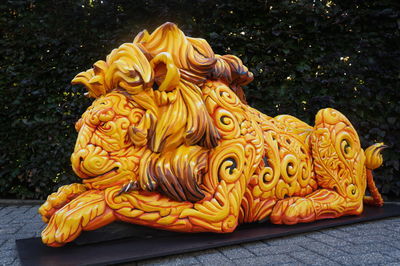
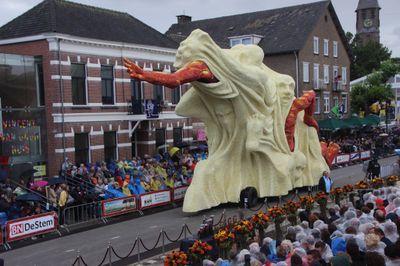
My creative background has deep roots by the flower parade from Zundert(biggest dahlia corso in the world) I have build the floats for over 9 years but since last year I am a designer of one of the twenty floats. Here you see the maquete for this year and the full scale float from last year.
Image THREE (topic of interest)
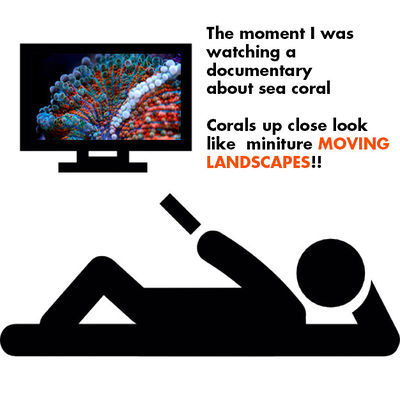
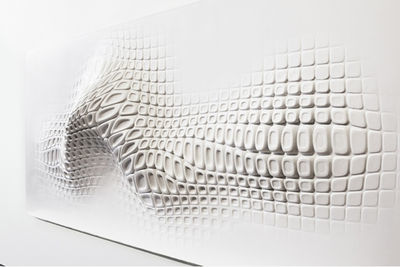
The coral landscape and the movement of them have brought my by Ora Ito he inspired his wallpaper on the sole of Reebok sneakers. He loved the way the sole bends and creates a moving landscape. He has tried to capture that movement in one piece of special acrylic. This quarter I want to actually let the wallpaper move.
Image FOUR (medium)
MAKING A MOLD (for the membrane)
I have chosen to make a coral landscape instead of the wallpaper of Ora Ito because I think the corals have an even nicer and a more various landscape than Ora's wallpaper.
TESTING
I have first tested a technical option out of knex. In the movie you see a membrane out of elastic fabric.

The mechanics of the test.
I was very glad with the visual outcome of this test. But I thought that it also could work in another way. Because the latex membrane had a lot of projections so the wheels wont ride smooth over the membrane.
Test 1: Membrane of high elastic fabric https://www.youtube.com/watch?v=md2VDZHLkGw&feature=youtu.be '
FINAL IDEA
By this principle the membrane is pushed from below so the mechanics won't stuck in the membrane. This principle would be 12x repeated.

FINAL PRODUCT
Moving landscapes is an project inspired on the natural movement of landscapes and industrialisation. Both combined result in an fun piece for at exhibitions or as an art piece in your own house. Landscapes and technique have one thing in common, they are constant changing. So my machine is also never the same, the crankshafts are constant moving (and they can be set in another position so the work changes). The landscape on top is also never for the eye the same. Because the movements move to fast for our eyes to follow.
Here a link to the video of my piece: https://www.youtube.com/watch?v=nl9NyjqGYL8
FUTURE



In the future I would like to take this concept to a bigger plan. You can imagine this like a big exposition where you can see 10 or more landscapes been moved by machines. The landscapes themselves vary in size and material. The coral prototype is from latex but other landscapes could be from iron, sand etc etc.
LAB
MEASURING VOLT, RESISTANCE & CURRENT
Measuring Voltage
3,15V
Measuring calculate Resistance
serie resistance
R1+R2+R3= 109,20 Ohm 10.000+330+100.000= 110,33 Ohm
parallel resistance
De totale weerstand met 2 weerstanden = 500 Ohm 1000:2= 500 Ohm - dit komt omdat hij het aantal weerstanden deeld op de weer De totale weerstand met 3 weerstanden = 333 Ohm 1000:3= 333 - dit komt omdat hij het aantal weerstanden deeld op de weer
Mesuring Current
I=11,18 A
MAKING A CIRCUIT (Etching a Printed Circuit Board)
And the circuit worked quite well!! Here the video of it. https://www.youtube.com/watch?v=9JL7ga9qnNs
Refrences
Tom Verbruggen|Module #1
(2009)
Handmade 4 Step sequencer. Able to transmit 4 midi notes, wireless.

Tom Verbruggen makes the mechanical part an aesthetic artwork, I love the way he displayed the machine.
My idea is that I would like to make the mechanical visual and aesthetic good looking.
http://www.toktek.org/Site/Module_1.html
Reuben Margolin|Pentagonal Wave
The Pentagonal wave is a similar visual strategy as I use, in my eyes he has made a beautiful landscape out of cylinders on a string.

https://www.reubenmargolin.com/waves/Pentagonal/pentagonal_video.html
Stephen Cartwright|Kinetic Mesh
2012
"text from his site":This programmable sculpture can display an infinite number of topographies based on a wide variety of inputted data. Cartwright uses data from a wide variety self-recording projects to create new moving landscapes. Each intersection on the 12x6 mesh can move vertically depending on the value of discrete data points within the set. With each row of new data, data sets with 6 or 12, columns scroll across the machine in waves. 72 column data sets completely refresh the entire surface.

Stephen has used a similar punching system to make his moving landscapes. But his driving mechanism is different than the one I use, he uses digital programming for his landscapes. I use an drill as driving mechanism that is a lot more low tech but fun to change the speed in an simple way.
http://www.stephencartwright.com/projects/--kinetic-mesh-video/
